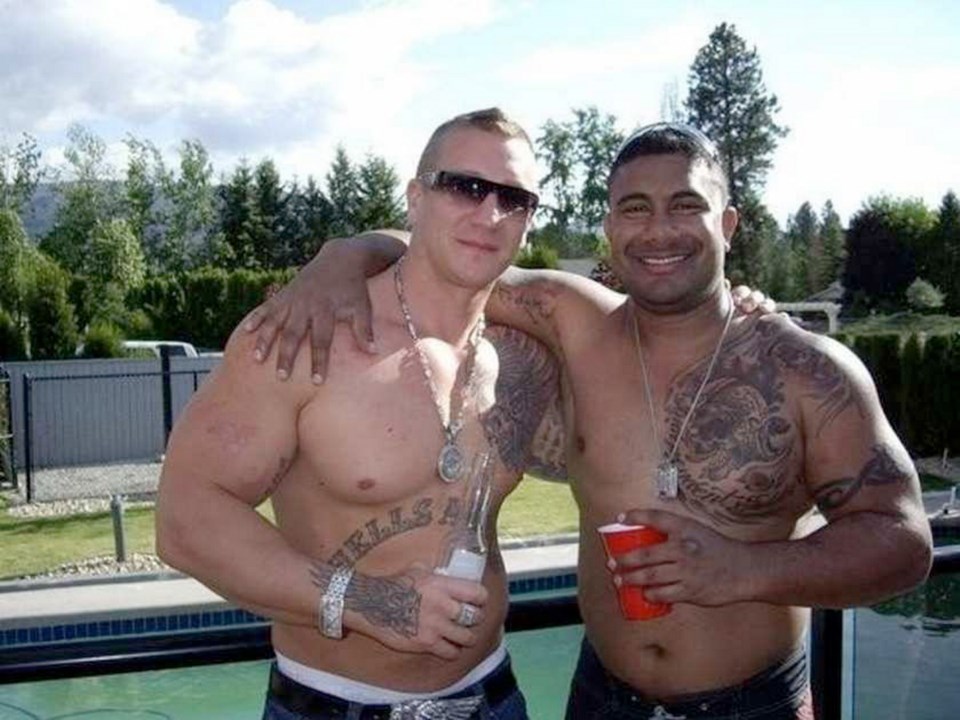For years, friends of incarcerated Hells Angel Larry Amero have pasted “Free Larry” stickers on their Harleys to demand his release.
On Wednesday, they finally got their wish after a judge in Quebec stayed organized crime and cocaine importation charges against the prominent B.C. gangster.
Prosecutor Philippe Vallières-Roland confirmed to Postmedia News that the charges were stayed because of the length of time the case took to get to trial.
Last year, the Supreme Court of Canada set a 30-month time limit for prosecutions at the provincial supreme court level to be completed, except in exceptional circumstances.
Amero is the highest-profile B.C. gangster to have his case thrown out under the so-called Jordan Rule.
The 40-year-old biker has been in jail since his arrest in Montreal in November 2012 as a prime target in Québec provincial police’s Project Loquace, which resulted in more than 100 arrests.
Amero and several associates, including now convicted killer and former B.C. gangster Rabih Alkhalil, were alleged to be ringleaders in a major coalition of organized criminals trying to control cocaine distribution across Canada.
Police said they found documentation in the penthouse Amero shared with Alkhalil showing millions of dollars in drug transactions, some of which were here in B.C.
Amero, who grew up in Metro Vancouver, joined the Hells Angels program as a hangaround in 2002 and became a full-patch member of the White Rock chapter of the biker gang three years later.
Just months before his arrest, he joined the breakaway West Point chapter, now operating out of a rented south Langley home near the U.S. border.
Hells Angels spokesman Rick Ciarniello did not respond to an emailed request for comment on Amero’s release.
Brad Stephen, a biker expert and retired Vancouver police officer, said Wednesday that Amero “is a formidable member within the Hells Angels and within the underworld in general.”
“He has managed to create alliances with different crime groups and been extremely successful and has made a lot of money in the drug trafficking business.”
If he returns to B.C. as expected, anti-gang police will be watching.
Sgt. Brenda Winpenny of the Combined Forces Special Enforcement Unit said police would take the appropriate action if Amero resumes his position in the Lower Mainland underworld.
“How he chooses to conduct himself when he gets back will obviously be on him,” Winpenny said. “We are very aware of the current gang landscape and the conflicts, and if he chooses to involve himself in that we would dedicate as many resources as possible to address that.”
When Amero was arrested in 2012, the B.C. head of CFSEU at the time said that Amero and two others charged in Quebec were “key figures” in gang violence in B.C.
Amero had formed the Wolf Pack alliance with some members of the Red Scorpion gang and some Independent Soldiers.
Amero, Scorpion Jonathan Bacon and Independent Soldier James Riach were in a Porsche Cayenne outside Kelowna’s Delta Grand Hotel in August 2011 when it was shot up by masked gunmen.
Bacon was killed in the shooting, while Amero was seriously injured. Riach escaped injury.
Three rival gangsters — Jujhar Khun-Khun, Michael Jones and Jason McBride — are currently on trial in Kelowna on first-degree murder charges.
After his near-death experience, Amero moved to Montreal, but would return to B.C. When he visited Vancouver in January 2012, police warned him he might be targeted again.
While Amero is now tasting freedom for the first time in five years, his former co-accused from B.C. haven’t fared as well.
Alkhalil was sentenced in Toronto in June to life in prison for hiring a hitman to kill Johnnie Raposso in Little Italy in June 2012.
And Shane “Wheels” Maloney, a B.C. native who joined Montreal’s West End gang, pleaded guilty in the Loquace case and was sentenced in May to 10 years in jail.
Winpenny said that if Amero wants to change his ways, police are there to help.
“We would like to offer Mr. Amero the opportunity to take advantage of the services offered by our gang exiting and outreach program,” she said. “He can contact the CFSEU-BC at 778-918-2287 if he would like help leaving his gang ties and lifestyle.”



